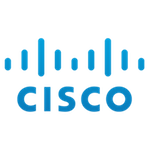Visionary Leadership in a Chaotic Time - and Why I'm Inspired to Follow
By Jennifer Boynton, Corporate Social Responsibility Content Strategist
Cisco Blogs | Corporate Social Responsibility
Cisco’s Chairman and CEO, Chuck Robbins, opened his June 1st all-company check-in by admitting he’s leading through uncharted waters. Cisco had held regular weekly check-ins since shelter-in-place orders began in March, to support employees, share information, and answer questions. But this meeting was different. It was a 90-minute “teach-in,” scheduled quickly in response to the killing of George Floyd by Minneapolis police and the resulting nationwide protests. Chuck and Fran Katsoudas, Cisco’s Executive Vice President and Chief People Officer, led a moving and heartfelt conversation with Darren Walker, president of the Ford Foundation, and Bryan Stevenson, the founder and Executive Director of The Equal Justice Initiative, while 30,000 Cisconians listened in and asked questions online. The group talked about structural racism, implicit bias, police brutality, and our shared responsibility to address these societal ills.
Oh, and Chuck announced that Cisco was donating $5M to charities dedicated to fighting racism and discrimination.
It’s easy enough for companies to make big financial commitments, impressive as they are. What’s more unusual is a company whose management leads through a crisis with courage– by doing the right thing and putting one foot in front of the other. That’s true sustainable leadership.
I’m relatively new to Cisco. I joined the company last July to help produce our annual Corporate Social Responsibility (CSR) report. Prior to Cisco, I worked as a journalist covering the corporate responsibility beat. After George Floyd’s death I was struck by how many companies stepped up to assist the current civil movement: with financial donations, learning sessions, commitments to the Black Lives Matter movement, and other acts of allyship. It was not so long ago that companies didn’t even feel the need to have any type of response to societal unrest.
That’s how it was back in 2014, when I covered the killing of 18-year-old Michael Brown by a police officer in Ferguson, Missouri, and the resulting protests from the perspective of companies’ responses. In some ways, the situation was quite similar to George Floyd’s: a grave abuse of power, a violent loss of a Black life, and cell phone cameras capturing and sharing images all around the world.
Back then, very few companies provided space for employees to grieve or talk about the protests – even though it was obvious that many employees were scared or distracted by the current events. I wrote a call to action imploring corporate responsibility leaders to speak out about the injustice and to make space for employees to process their pain.
A lot has changed in six years for me professionally. Now I have the pleasure to be working on corporate responsibility communications at Cisco.
A lot has changed in the corporate world as well. This time around, I didn’t need to ask for corporate leadership, because a plethora of companies are stepping up for what’s right. While some statements from companies have been criticized as PR efforts that do little to address systemic inequality, they are a move in the right direction. As Hunter Lovins, co-author of Natural Capitalism and co-founder of the Rocky Mountain Institute says, “Hypocrisy is the first step toward real change.” Once a company makes a commitment to social justice or environmentalism, it’s much easier to challenge them when their public statements don’t line up with performance.
Cisco has moved way beyond the window dressings. In the intervening weeks since that first check-in, Cisco has continued to convene company-wide meetings on a weekly basis; race and the Black Lives Matter movement are regular agenda items almost every week. The conversation continues, even when it’s painful, like when leadership discussed why “All Lives Matter” is an offensive term.
Our CEO’s leadership is an embodiment of Cisco’s commitment to Conscious Culture, which is a set of expectations, principles, and measures that we believe best define Cisco’s values, beliefs, and ethos.
We said in last year’s CSR report that “Conscious Culture provides an environment where trustworthiness and ethical conduct are expected and supported. And, Conscious Culture means being aware of the environment we’re part of, and feeling accountable, empowered, and expected to contribute to a culture where we feel safe and can thrive.”
Corporate leadership’s embodiment of these principals in a crisis is an example of true sustainable leadership. It doesn’t surprise me at all that Cisco made the 100 Best Corporate Citizens list again this year, this time at #4. Each year, the creators of this lauded list, 3BL Media, develop the 100 Best Corporate Citizens ranking, in partnership with Institutional Shareholder Services (ISS) ESG. The list ranks the Russell 1000 on eight factors including climate change, employee relations, environment, ESG performance, financial performance, governance, human rights, and stakeholders and society. This integrated approach means that a company must perform well across environmental, social, and governance issues.
In January, if you’d told me June would find us collectively reliving the 1918 Spanish Flu, unemployment levels last seen in the Great Depression, and the 1968 riots that followed the murder of Martin Luther King Jr. all at the same time, I would have called you a Lyft and sent you home to sleep it off. Times are dark. But it’s heartening to me to work for leadership that is taking this dark moment and doing their damnedest to shine a light on a path we can all take forward.
Cisco’s leadership intends to conduct these difficult conversations on an ongoing basis, challenging all Cisco employees to learn and improve together. Other companies and communities should do the same. It’s only with our commitment to examining our painful past and the way it has systematized racism, economic inequality, and injustice in the present that we can build a more inclusive future.

